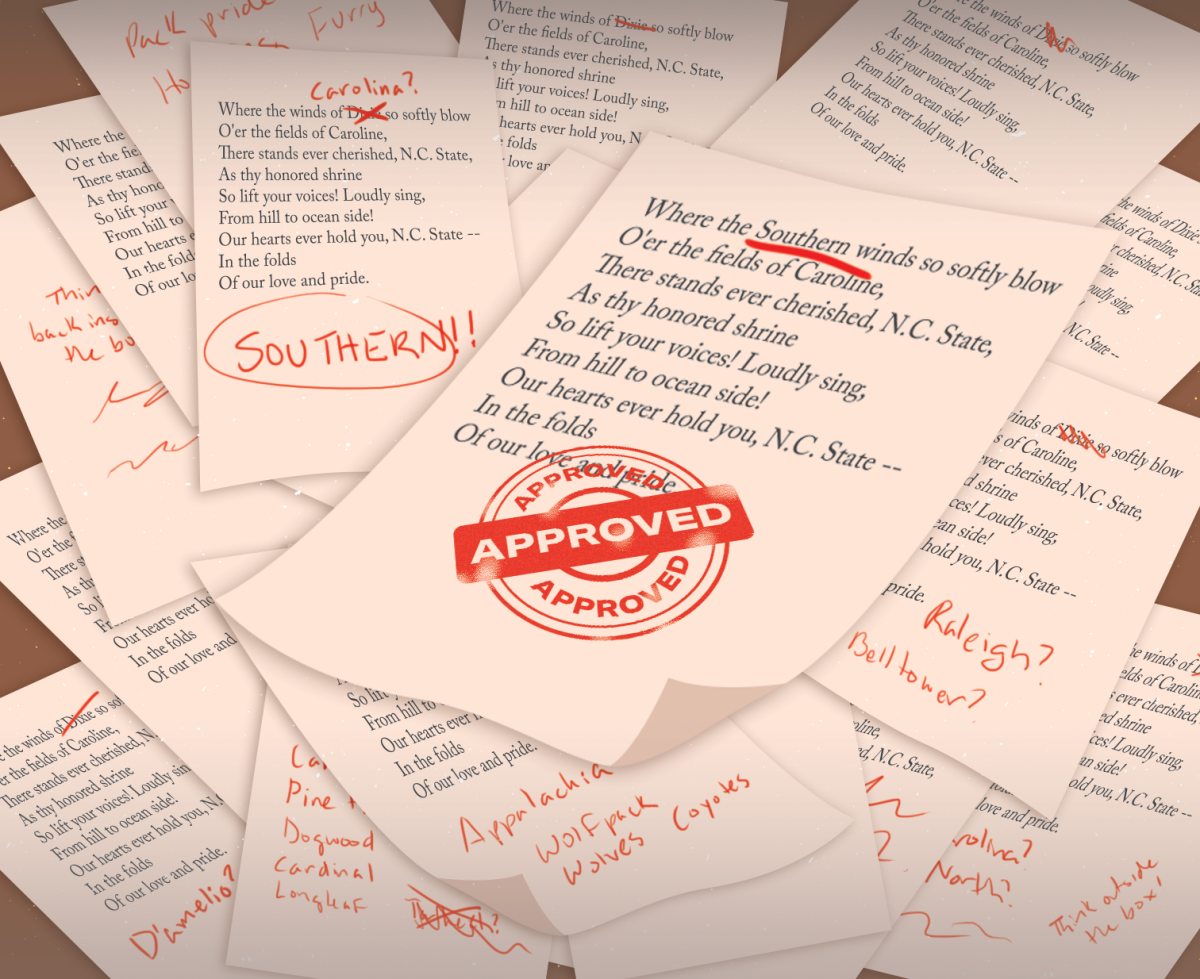The NC State Board of Trustees approved removing the word “dixie” from the alma mater and replacing it with the word “Southern.” This issue was first brought up in 2014, but was only resolved recently in February of 2022.
According to Karen Bullock, a professor and head of the School of Social Work, she and other previous members of the Faculty Senate began advocating for the removal of the word in 2014. Bullock graduated from NC State in 1990, and upon returning as a faculty member she felt that very little had changed in terms of recruiting and retaining Black students.
“When I was a student here, it was reportedly about 6% Black students, and then when I returned as a faculty member, it was still about the same percentage,” Bullock said. “So that’s my reference point for little change.”
Bullock had always been concerned that the alma mater, which is supposed to reflect the values of all alums, was not inclusive of all people. According to Bullock, she felt it was her duty and obligation to Black alumni as well as future students and faculty members at NC State to raise this issue.
“When I returned as a faculty member, this hearing and singing of the alma mater just didn’t feel welcoming; it didn’t feel like it should be happening in the 21st century,” Bullock said. “We were holding on to these antiquated Confederate messages, because for many white people in the South, the Confederacy means something very different than it does for Black people in the South. The language of the Confederacy is not warm. It’s not welcoming.”
According to Bullock, although the issue was first raised in 2014 and became stagnant for a period, there were faculty senators and other faculty members who continued to encourage the pursuit of this goal, regardless of the disinterest others were showing.
“Then came COVID-19, the pandemic, the racial unrest, the killing of George Floyd and many other Black men and women, mostly men,” Bullock said. “A shift occurred in terms of the recognition and acknowledgement. While we were all standing still, sheltering in, we had not much else to distract us from the racism that was occurring right in front of our eyes and the racialized violence. Many of my white colleagues have said, for the first time, they realized that there was racism. It created the perfect storm to try to usher in this conversation again. And so the University returned to this discussion about that Confederate term that’s in our alma mater.”
Stacy Nelson, the interim associate dean for diversity and inclusion and professor in the College of Natural Resources, was also a member of the Faculty Senate who pressed this issue. Faculty Senate adopted a resolution in favor of updating the alma mater in 2016, but the results were never acted upon according to Nelson.
“That was brought on by just a number of different individuals, different groups, feeling that ‘dixie’ was just highly offensive at a very celebratory time [graduation] to be standing in full awe and pride of the University and the accomplishments of our graduates and to be singing that word, ‘dixie,’ as part of our alma mater and taking such great pride in that level of iconography,” Nelson said. “And so the Faculty Senate brought it forth and voted on it as a resolution to have that removed, however, it was never acted upon.”
When Bullock initially raised the question of whether to change the alma mater in the Faculty Senate, she was met with a lack of interest in the subject from her peers. According to Bullock, other faculty members felt that there were more serious matters to be addressed than the alma mater, and were concerned with upsetting and alienating the oldest alumni and legacies with this change.
“The legacy alumni aren’t people who look like me, because the legacy alumni are those people who have had generation after generation of family members who have graduated from NC State,” Bullock said. “And because we weren’t allowed to enter this university until so late, we’re not at the point of being like legacy. They didn’t want to alienate the people who have been here the longest, who have given the most resources, and the concern was that of changing or removing ‘dixie.’ It has no other meaning that we can find other than the association with the Confederacy and the divisiveness and the racism and oppression of people of color.”
According to Nelson, at the last faculty general assembly meeting in 2021, the Chancellor said that the University’s copyright to the word “dixie” would expire in early 2022 and appropriate action would be taken then.
“‘Dixie’ was not a welcoming and inclusive ideal for African Americans in the South,” Nelson said. “‘Dixie’ represented a barbaric iconography of a land at a time when African Americans were brutalized. And it was held in high esteem for those folks that felt connected to a time and a heritage that did not promote inclusivity. And so, I think that if we’re honest with ourselves, and we’re serious about being representative of all the people, why would we want to include something as hurtful as that?”













